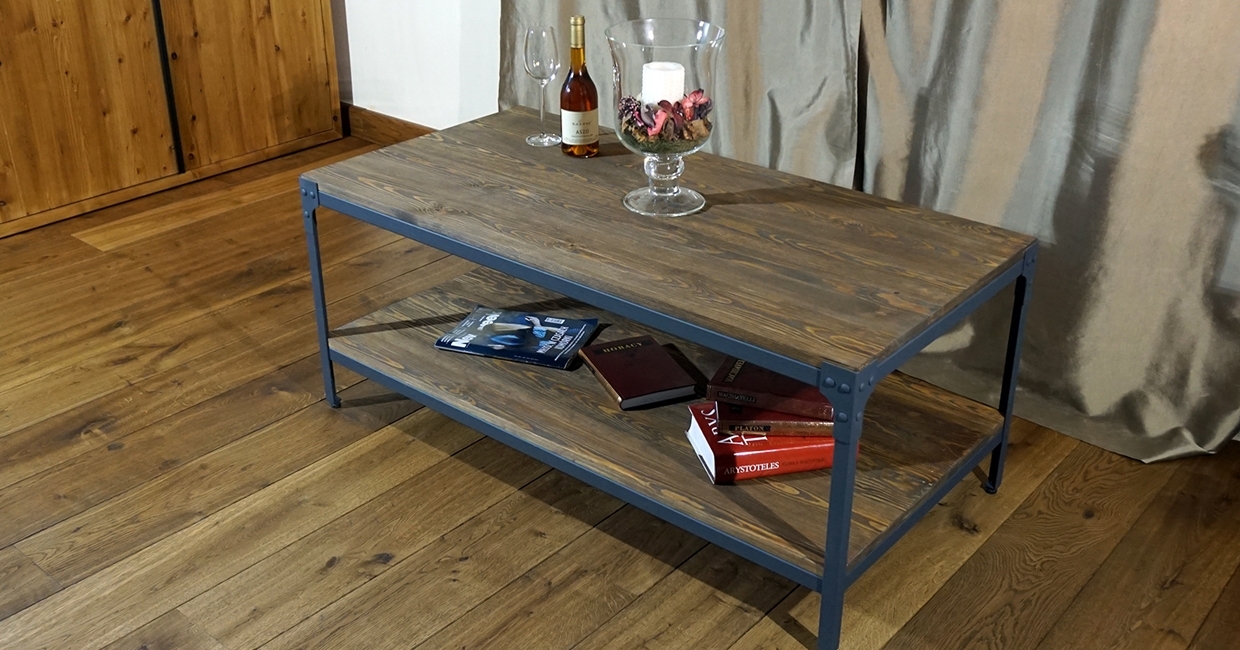Based in southern Poland at the foot of the Carpathian mountains, upcycled contemporary furniture collective Due may be surrounded by mass production facilities, but its approach to manufacturing couldn’t be more different …
The furniture industry is extremely resource-hungry, and as the world’s fourth-largest furniture manufacturing nation, Poland boasts more than its share of factories that are reliant on wood from its forests.
This timber is commonly used to create chipboard panels and other components – but, for a growing company based in Nowy Sącz, the material has much more value when it comes in more natural forms.
Polish furniture manufacturer Due works with a network of around 50 local workshops and specialist craftspeople to bring a growing portfolio of contemporary furniture designs to life. Although modern in style, each model boasts a rustic, timeless quality, thanks to the timber from which it is made.
A concept of natural harmony
Due was established by Polish entrepreneur Jarosław Kowalik, whose passion for wine led him one day to muse what could be done with aged oaken wine barrels that had fulfilled their purpose. He also looked around his region and saw the many old wooden cottages that were being demolished to make way for new homes.
Surely, he asked, all the strong, warm timber that was going to waste in these two sources could be given a new lease of life?
Furniture was Jarosław’s immediate vision, and he began designing and making pieces as a hobby – but, driven by feedback to his early successes, this hobby soon became a business, and Due was born.
With the help of his friend Irek, who would handle production, and Monika, who headed up the design work subsequently, Jarosław set to work building a furniture brand rich in provenance – one which employed unique upcycled materials, sourced from eclectic locations and formed into eye-catching designs by skilled local craftsmen.
Its product lines still utilise wood from European wine barrels – typically Tuscan or Piedmontese – as well as old barns, wooden houses, and Catholic and Orthodox churches. Due combines this wood with stone and glass, merging vintage, Provence and Scandi styles. The result is a wide range of characterful, high-quality furniture, with options for customisation based on stockists’ preferences.
From production to fulfilment
Because Jarosław insists upon a minimum of automation, Due’s production process is challenging – often the craftsmen must draw on traditional woodworking techniques, handed down from generation to generation, to fulfil their brief.
Today, Due’s network of craftsmen makes around 50 models each day – but Jarosław is keen to take his operation to the next level, and is seeking international partner stockists to join his company’s journey.
Having recently exhibited at trade shows in Dubai, Stockholm and Cologne, Due is eyeing the UK marketplace from its London office, where team members Marta (office manager) and Lilianna (sales and marketing) work alongside Monika and Irek to bring the company’s portfolio to the market.
At the moment, Due is working on a variable production lead time of around eight weeks. This may be longer than some retailers are willing to wait for cabinet furniture – but, as Jarosław might suggest, like a fine wine, achieving the best results takes time.







